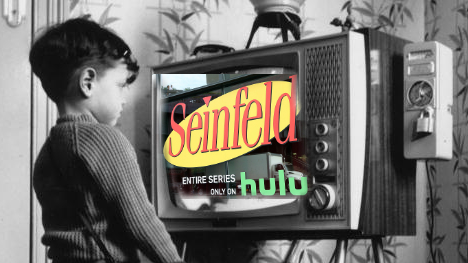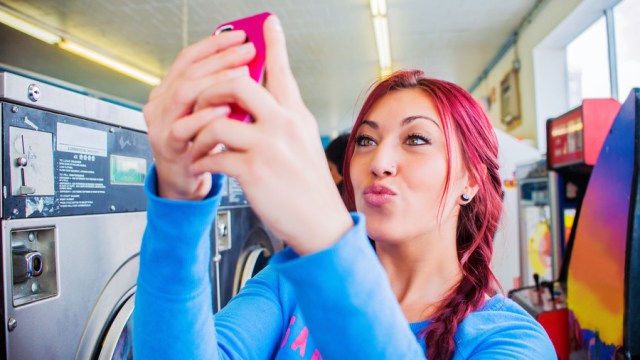There’s More TV Than Ever — That’s a Problem for Our Culture.

Some of the most important landmark moments of American culture happened as we gathered around the glow of a television set. We witnessed not just live events like the moon landing in 1969, but shared sitcoms and news stories told by a few trusted anchors. From The Beatles on Ed Sullivan in 1964, to “who shot JR” on Dallas in 1980, to Must See TV in the mid-1990s, tens of millions of us tuned in and experienced these together in real time. In 2015, entertainment is so niche that such phenomena is now a relic. But what, exactly, is being lost and why does it matter?
The closest we’ve come to having an event was the Breaking Bad finale, which was watched by 10.3 million people. But compare that to the Seinfeld finale 15 years earlier, which was watched by 76 million viewers, or the M*A*S*H* finale in 1983, which was watched by 106 million viewers. Clearly, there has been a shift in how and when we consume media, considering that Breaking Bad was on a cable channel and not a network, and that most people will be watching it later on Netflix.
Television has always been an equal ground — we may not agree on politics or religion, but we can agree that Lost was really confusing this week.
What happens, though, if we can’t talk about what happened on last night’s (enter show title here) with our coworkers or schoolmates? Television has always been an equal ground — we may not agree on politics or religion, but we can agree that Lost was really confusing this week. If our culture is niche, splintered into entertainment that is specific to our tastes, then losing the great uniter of TV means we’re losing one of the few things that connected us beyond our many demographic differences.
I recently wrote about how diversity in television affects our attitudes toward minorities, and I’m concerned that as we sequester ourselves to watch only the programs we like, we’re missing out on hearing other perspectives. When networks greenlight something like The Cosby Show in the 1980s, our metaphorical slightly racist relatives watched this all-black family because they had to, and their attitudes started to soften.
Because we have high-speed internet and hundreds of channels, we don’t have to hear from anyone else we think of as different.
At its height, The Cosby Show was watched by 30 million people. Today, there’s a show called Fresh Off The Boat that features an all-Asian family that averages 5 million viewers. If someone is bothered by that show, or Black-ish, they can turn the channel or watch Netflix, Hulu, Amazon Prime, or whatever else is on Apple TV. It’s indicative of a bigger problem: Because we have high-speed internet and hundreds of channels, we don’t have to hear from anyone else we think of as different, and then we can just keep them in the stereotyped box we created for them. Why have our ideas challenged when we can cuddle up in our echo chamber and hear our opinions fed back to us, keeping us comfortable and placated?
I love television; I think it’s a force for good and an agent for change. But the TV I knew growing up grew up also. The days of sharing a moment as a nation, of sitting in front of a TV and knowing everyone was doing the same, are as dated as CBS and the multicam sitcom. Maybe I’m just nostalgic, or have my own bias toward a device that always felt more like a friend. I miss the collective experiences we used to have, but spoiler alert: Those times are dead.
Actress and comedian Maysoon Zayid argues that casting entertainment roles is still a way to break through social barriers.
—
Lori Chandler is a writer and comedian living in Brooklyn, NY, which is the most unoriginal sentence she has ever written. You can look at her silly drawings on Tumblr, Rad Drawings, or read her silly tweets @LilBoodleChild. Enough about her, she says: how are you?
SEINFELD PHOTO CREDIT: Monica Schipper/Getty ImagesTV PHOTO CREDIT: Edward Miller/Hulton ArchivePHOTOSHOP COLLAGE: Lori Chandler





